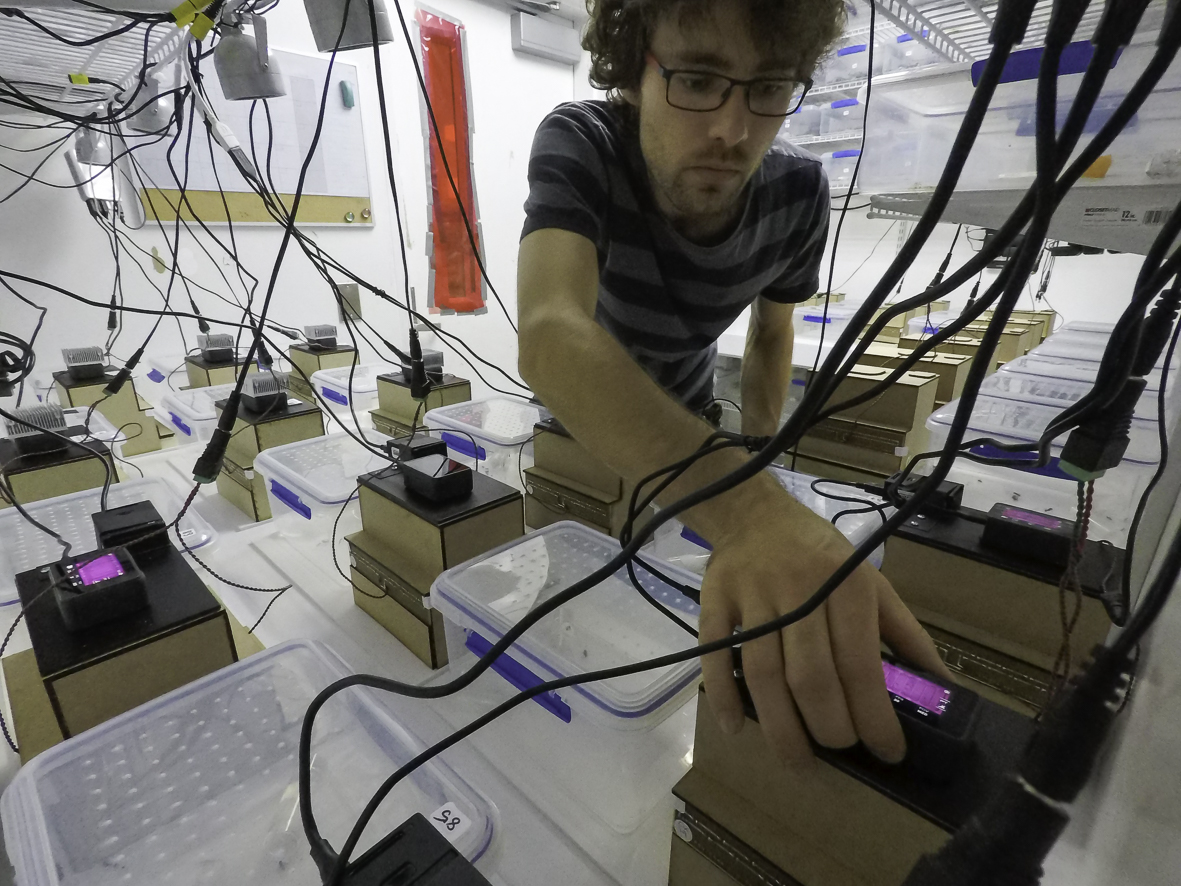Dr. Christoph Kurze
Contact
Institute for Biology - AG Prof. Dr. Paxton
room room 6.11
Hoher Weg 8
06120 Halle
phone: +49 (0)345 55 26503
christoph.kurze@zoologie.uni-halle.de

Parasites are ubiquitous and act as strong natural selective force. I am particularly interested in disease dynamics to answer fundamental questions in evolutionary ecology.
- How do host life-history traits affect the parasite burden?
- How do parasites manipulate their hosts and how can hosts counter adapt?
- What factors influence disease transmission?
To answer these questions, I have been studying social animals both in the field and laboratory controlled experiments using an interdisciplinary approach. My current focus is to disentangle how horizontal transmission is affected by population size, density, social behavior and environmental complexity. Gaining a better understanding of these factors is critical for being able to predict epidemic spread under novel conditions. We use the carpenter ant Camponotus pennsylvanicus to study the spread and transmission of a GFP-(green fluorescent protein)-labeled generalist pathogen (Metarhizium robertsii) as model system. Using modern microscopy and tracking of individual ant movement based on deep-learning algorithms allows us to study disease dynamics in complex scenarios (i.e. altering group sizes and nest architecture).






